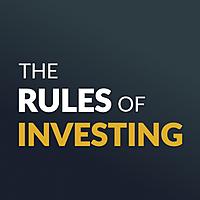Tough medicine: Trump 2.0 is a structural break for economies and markets
Investors hoping for a swift ‘V-shaped’ recovery from the recent market sell-off are likely to be disappointed. Instead, they face a slow, grinding path forward. That’s the base case from Koda Capital’s Chief Economist, Brigette Leckie, who says the tariff-led policies of Trump 2.0 represent a structural break for economies and markets.
Past dislocations - such as the GFC, the pandemic, and the dot-com crash—all occurred during an era of globalisation and free trade. While deeply painful, these events were relatively short and sharp, followed by powerful recovery rallies fuelled by large doses of stimulus.
“As you get a world that is becoming more fractionalised and deglobalised, with higher inflation, it’s more difficult to get the same degree of stimulation. I think there are more parallels with the 1970s.”
Tariffs were a significant part of international trade policy in the 1970s, pre-dating the move towards a more global economy, which gathered steam in the 1980s and 1990s. A higher cost of goods was one impact of tariffs. The era was also marked by a protracted bear market, with the S&P 500 falling 48% over nearly two years. More worryingly, the broader stagnation lasted over a decade, as high inflation eroded any gains investors made.

More of a shakeout to come
Markets have been rattled by uncertainty surrounding Trump’s trade policies, and Leckie says there is likely more pain ahead. It’s a case of ‘tough medicine’ in a second Trump term, and she believes there will be limited deal-making.
“I think it is fair to say the US administration is absolutely determined to bring manufacturing - mid to high end - back to the US.”
This inward focus has implications for other major economies, which will need to adapt and respond to the new economic model. The latest Bank of America Fund Manager Survey recorded the fourth-highest recession expectations (42%) in the past 20 years, with hard landing expectations surging to 49% - up from just 11% in March.
Leckie’s base case is that the US will experience a mild recession, while China is likely to take a significant hit to GDP growth. The uncertainty, she warns, will start to flow through to corporate earnings, where she expects meaningful downgrades from US companies.
“The direct impact on stock earnings will be more pronounced, with earnings growth for the S&P 500 now expected to be lowered to near +3%, down from over +10% forecast at the beginning of this year. In the coming days, we anticipate a wave of downward earnings revisions from Wall Street analysts,” Leckie told clients.
The curtain is being drawn on the era of US exceptionalism, and Leckie believes investors should, if they haven’t already, reassess any overweight exposure to US equities.
Australia is a ‘relative’ winner
Relative is a nuanced word when it comes to investing - relative outperformance can still mean you’ve lost money. However, if there are positives to draw from the current scenario, Leckie says Australia could fare better than other countries for the following reasons.
- China, a key trade partner, may dial up stimulus to boost growth.
- The US manufacturing build will require commodities - something Australia has in abundance.
- Cheap goods from China could make their way to our shores, easing inflation.
- Fiscal easing in the wake of the Federal election could provide some support.
- The RBA has room to move on rates, especially if inflation moderates.
Leckie says Koda has retained a defensive positioning across portfolios and isn’t making any ‘knee-jerk’ reactions. For investors feeling uneasy, her advice is to resist the temptation to react, push negative headlines aside, and if the volatility is keeping you awake - perhaps reevaluate your risk profile.
She’s adamant that this is a structural break for markets and that we’re moving away from a world that is US-dependent. It will take time for the dust to settle, but over time, winners will emerge.
“Right now we’re seeing a lot of the challenges. The opportunities will emerge.”


